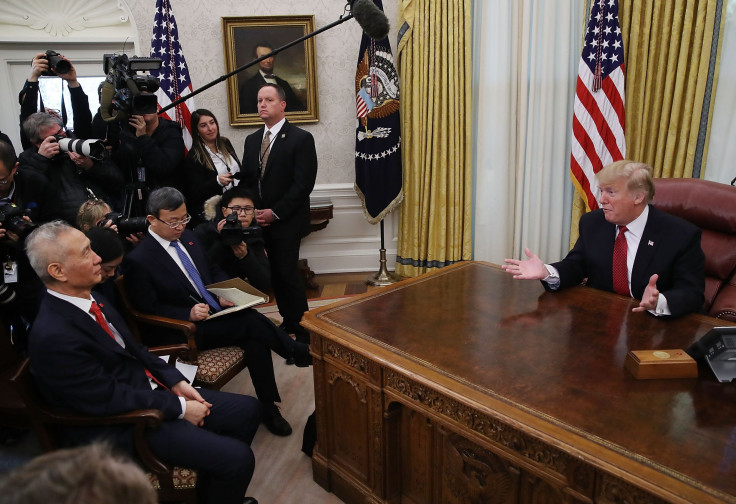China’s Trade Surplus In May Hits $41B, Double Than Expected

The latest in China news is China’s surprisingly huge trade surplus in May despite the raging trade war with the U.S and widespread expectations of a lower surplus.
China, on Monday, announced that the trade surplus for May has been $41.65 billion. This contrasts the performance in April when China clocked a small trade surplus of $13.8 billion, far below the projected estimate of $35 billion.
The trade data was released by China’s General Administration of Customs.
The Reuters poll of economists had counted on the overall trade surplus of May to be $20.5 billion. The economists were expecting China’s dollar-denominated exports and imports to slide 3.8 percent year-on-year.
But the actual data shows China’s country’s dollar-denominated exports for May having grown 1.1 percent and fall in imports by 8.5 percent.
In May, President Donald Trump slapped 25 percent tariffs on $200 billion worth of Chinese goods. More levies on Chinese imports are expected. Higher China tariffs on U.S. products worth $60 billion came up as a response.
Meanwhile, the U.S trade authority, USTR said it relaxed the deadline for higher tariffs on certain Chinese imports that were effective from June 1. The new date for upped tariffs will be June 15. This gives relief for some categories of Chinese products to enter the United States without the upcoming 25 percent tariff.
The U.S. Treasury Secretary Steven Mnuchin told CNBC that Trump would increase tariffs on China if his upcoming meeting with China President Xi Jinping at the G 20 Summit does not become very productive.
China allowing the slide of currency yuan
Meanwhile, the U. S accused China of allowing its currency yuan to slide as a way to neutralize the impact of Washington’s trade tariffs' cost falling on American consumers. The allegation was raised by Treasury Secretary Steven Mnuchin on Saturday.
“It’s not coincidental in my mind that the currency has moved from approximately 6.30 yuan to the US dollar to 6.90,” he said. Mnuchin was speaking to media on the sidelines of the G20 finance leaders’ meeting in Japan.
Unlike frequent interventions in the past, there has been no intervention by China now, he said.
“The decision not to intervene after intervening for a very long period of time may lead the market to view that there is a desire to have the currency to weaken,” Mnuchin said.
Meanwhile, a study by Reuters showed that China’s import of soybeans has crashed 24 percent in May compared to the same period in 2018. Lower demand for soybeans in China came from the higher tariffs slapped on U.S. cargoes by China and the swine fever outbreak in Africa.
© Copyright IBTimes 2024. All rights reserved.




















